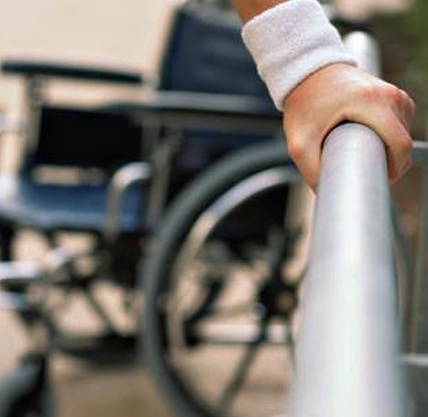Traumatic brain injuries can be very serious
While not always life threatening, a trauma can severely impair a victim's ability to think clearly. A traumatic brain Injury is a medical term that refers to any sort of brain injuries. Mild traumatic injuries occur when the head is seriously damaged but doesn't necessarily break down completely. Mild traumatic injuries can occur to adults of all ages, but the most common cause of mild traumatic injuries are physical objects (e.g., bullet, flying object, or blunt force).
As compared with severe brain injuries, mild ones often result in very minimal changes to brain function, although a victim can still suffer from aphasia (loss of language skills) and dementia (dementia resulting from diminished mental function). Some victims may recover some or all of their ability to speak following a traumatic event, but others may require intensive, long-term care.
Traumatic brain injuries are classified according to the level of injury sustained. Traumatic brain injuries range from those that can be easily healed with rehabilitation to those that can never heal without immediate intervention. Sometimes even mild traumatic injuries can be debilitating enough to prevent victims from going about their daily lives. For these cases, legal action is usually sought after and medical help sought for victims of severe brain injuries.
Traumatic brain injuries can also affect the victim's ability to interact with others. Injuries resulting from violent acts can make it difficult for victims to work or maintain social relationships. Traumatic brain injuries are classified according to the severity of the impact the brain receives. Brain injury lawyers deal with cases that fall under each of these categories. Victims of a traumatic brain accident will generally require at least two weeks of hospitalization followed by at least four months of therapy, depending on the extent of the injury.
Traumatic brain injuries can affect the victim's ability to communicate. They can also cause the victim to lose interest in their current hobbies and/or cause them to withdraw completely. Symptoms that could signal that a brain-damage victim is suffering from a traumatic brain injury include loss of memory, inability to form new memories, amnesia, or confusion, or trouble understanding and processing information. and speaking. Victims of severe brain injuries may also experience seizures and headaches.

Traumatic brain injuries can affect the victim's ability to perform activities of daily living, such as speaking, walking, writing, eating, bathing, driving, or caring for oneself. If a traumatic incident is caused by a sharp object, it can permanently damage the victim's ability to function normally in the day-to-day tasks of life. This could mean the difference between missing out on work, school, college, or other benefits that society provides. The victims' ability to work or perform these activities may also vary depending on the severity of the injury. For example, a blunt object can severely limit a victim's ability to perform basic household tasks like cooking, cleaning, taking a bath, or using public transportation.
Traumatic brain injuries require medical attention and immediate, proper treatment. Victims of this type of injury may need extensive rehabilitation, depending on the severity of the damage sustained. Because this type of brain damage is often irreversible, victims should seek medical care immediately, especially if they have a history of traumatic injury and are suspected of having a traumatic injury in the future.
The long-term consequences of traumatic brain injuries include serious mental health issues, including depression, substance abuse, and personality disorders.
Victims of this type of brain injury are prone to developing these mental health problems as well
Another consequence of traumatic brain injuries is a reduction in productivity in the workplace. Injuries that lead to serious head injuries have been shown to impair victims' ability to carry out their duties in the workplace, resulting in lower productivity levels. If victims cannot focus properly or focus for extended periods of time, they may lose interest in their jobs and/activities and even find it difficult to hold down a job.
A traumatic brain injury can be devastating to victims and their families. It can have a profound effect on their lives, affecting every aspect of their lives from work, relationships, and personal growth to social relationships and self-image. Victims should consult with an attorney if they have any concerns about a potential brain injury.